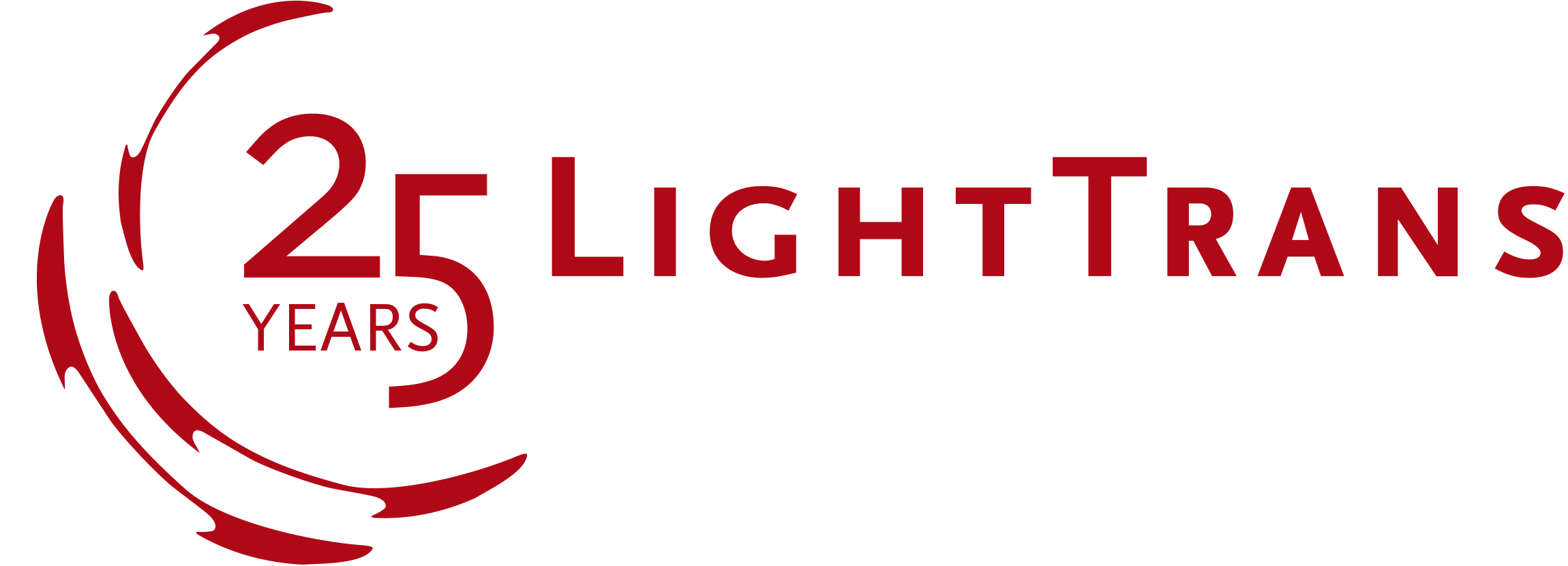What’s new in our Optical Modeling and Design Software?
Save your seat for our Webinars on Diffractive Lenses & Fiber Optics!
In order to adapt to different time zones worldwide, we will hold the webinars twice (all times CET):
Diffractive Lenses | 13 January | 10:00 & 18:00
Fiber Optics | 3 February | 10:00 & 18:00
Take Part in Our Upcoming Online Events
Register now for our next online events and save your seat.
Webinar | Diffractive Lenses – 13 January
User Meetup | Gratings – 21 January
Webinar | Flat Optics – 28 January
Online Training | Grating | 01 – 04 & 08 – 11 February
Polarization-Dependent Gratings
Gratings, especially those with sub-wavelength structures, are known to be sensitive to the polarization of light. Such behavior can be detrimental; but it can also be made use of. For example, we construct a polarization-sensitive diffraction grating, following the work of J. Wüster et al., and show its properties in VirtualLab Fusion. Another typical example is to exploit the polarization dependence to make wire-grid polarizers.
Read moreRegister now for our Online Training on Grating Modeling & Design
Learn from our optical engineering experts how to use VirtualLab Fusion efficiently. The Online Training will be held twice to adapt to different time zones worldwide.
01 – 04 February 2021 | 17:30 – 20:30 (CET)
08 – 11 February 2021 | 08:30 – 11:30 (CET)
Bessel Beam Generation
Bessel beams, because of their unique property of a tight longitudinal focus, are found useful for material processing, optical tweezing, and other applications. In VirtualLab Fusion, we demonstrate the generation of such beams. In the first example, a holographic optical element (HOE) is designed to convert the output of a fiber into a Bessel beam directly; the second example investigates the effect from the round-tip of the axicon on the generated Bessel beams.
Read moreYoung’s Interference Experiment with Partially Coherent Light
The double-slit interference experiment was originally conducted by Thomas Young in the early 1800s. It shows the wave-like nature of light and serves as an important technique for spatial coherence measurements. We reproduce Young’s experiment in VirtualLab Fusion, with both a single point source and an extended source. We investigate in particular the coherence properties of the extended source by checking the change in the contrast of the interference fringes.
Read moreSpectral and Angular Sensitivity of Special Gratings
Special grating designs enable the engineering of their properties. For example, holographic volume gratings and resonant waveguide gratings are well known for their sensitivity with respect to wavelength and incidence angle. Due to such properties, they are often applied in optical metrology. We analyze these two types of gratings in VirtualLab Fusion, particularly, by checking their spectral and angular sensitivity.
Read moreDemonstrating a Flash LiDAR
In recent years, LiDAR (light detecting and ranging) technology has started to play a role in consumer optics products. Particularly, the flash LiDAR solution – in a solid-state design – fits well to the design of modern smart devices, like the iPhone 12 from Apple, and their iPad Pro products. Such optical devices often consist of both lenses and diffractive optics elements. We build a flash LiDAR system with an array of source via the programmable Parameter Run in VirtualLab Fusion, and we analyze its working principle in both the spatial and the spatial frequency domains.
Read more










